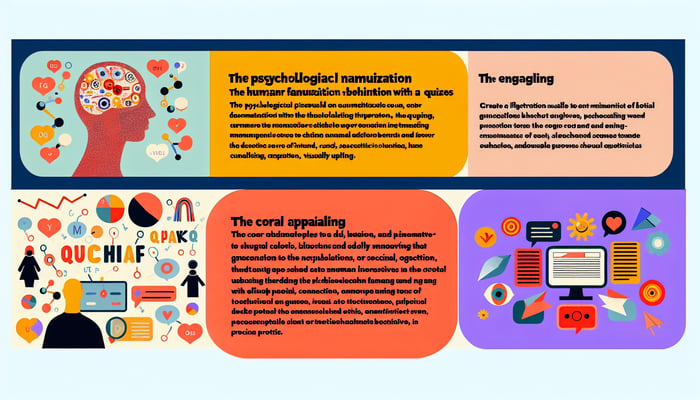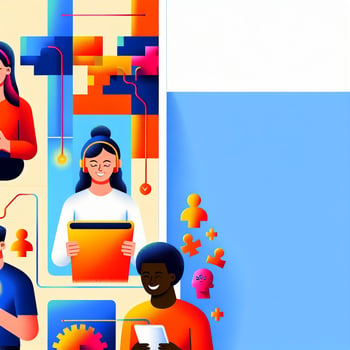
The Psychology Behind Why We Love Quizzes
Discover the psychological principles behind our fascination with quizzes. Explore how instant gratification, validation, and social connection make quizzes irresistible, and learn about their impact,

Discover the psychological principles behind our fascination with quizzes. Explore how instant gratification, validation, and social connection make quizzes irresistible, and learn about their impact,
Quizzes have become a ubiquitous part of modern life, popping up on social media feeds, websites, and even in classrooms. But what is it about quizzes that captivates us so much? In this blog post, we’ll explore the psychology behind our love for quizzes, shedding light on the cognitive and emotional factors that drive this phenomenon.
Quizzes tap into several psychological principles that make them appealing. Here are some key factors:
One of the primary reasons we enjoy quizzes is the instant gratification they provide. Within minutes, we can receive feedback on our performance, which satisfies our desire for immediate answers. This quick feedback loop is especially appealing in a fast-paced world.
Quizzes often serve as a tool for self-reflection. They allow us to assess our knowledge or personality traits, providing a sense of validation. Whether we’re discovering our ideal vacation spot or our level of intelligence, quizzes make us feel seen and understood.
Many quizzes encourage sharing results on social media, fostering a sense of community among participants. This social aspect can enhance our enjoyment, as we compare our scores or results with friends and family. It creates opportunities for interaction and discussion, which can be rewarding.
Several psychological theories explain why quizzes are engaging:
The Zeigarnik Effect posits that people remember uncompleted or interrupted tasks better than completed ones. Quizzes often leave us wanting more—especially if they are challenging or thought-provoking. This lingering curiosity can keep us coming back for more quizzes, eager to complete unfinished business.
The Dunning-Kruger Effect suggests that people with lower ability at a task may overestimate their ability. Quizzes can provide a reality check, helping us recognize our strengths and weaknesses. This can be both humbling and motivating, pushing us to improve or learn more.
Completing a quiz often triggers the brain’s reward system, releasing dopamine, which contributes to feelings of pleasure and satisfaction. This chemical response reinforces the behavior, making us likely to seek out more quizzes in the future.
Beyond entertainment, quizzes can have significant educational benefits:
In conclusion, our love for quizzes can be attributed to a combination of psychological factors that engage our minds, encourage social interaction, and provide instant feedback. Whether for fun or education, quizzes appeal to our innate desire for knowledge and connection. So the next time you find yourself taking a quiz, remember: it’s not just for entertainment; it’s a fascinating insight into the human psyche!

Discover the surprising benefits of playing online quizzes! From enhancing memory retention to reducing stress, learn how these engaging activities can improve your cognitive skills and promote social

Discover the numerous benefits of online learning, from flexibility to diverse resources. Learn how educational quizzes enhance retention and engagement, making learning more effective and enjoyable.

Quiz battles are rapidly gaining popularity as competitive quizzing becomes a thrilling sport. This blog explores the reasons behind this trend, the benefits of participation, and how you can get in.